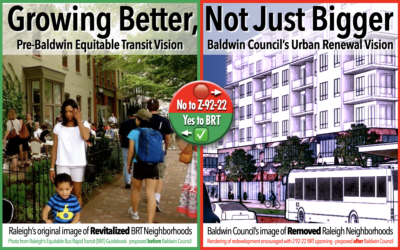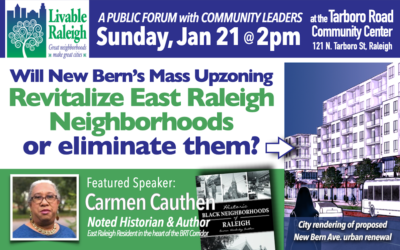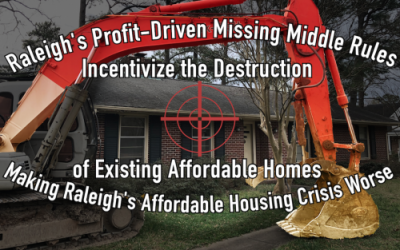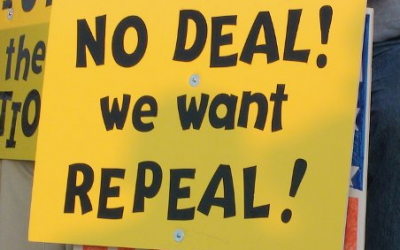As a city, we are currently not doing a very good job on two fronts: having a strong and aggressive program educating citizens and the building industry on the importance of tree preservation/protection, and, having some common sense regulations in place that will result in a better outcome for trees in the city.
It’s time to Wake UP to facts.
Tim Niles submitted a Letter to the Editor of the N&O in response to an Op-Ed from the Director of WakeUP Wake County on the topic of the New Bern Avenue upzoning proposal. The LTE wasn’t published so we are printing it.
January 30, 2024 City Council Meeting Highlights
A. 7:00 P.M. EVENING AGENDA B. MEETING CALLED TO ORDER BY THE MAYOR C. MATTERS SCHEDULED FOR PUBLIC HEARING 1. Comprehensive Plan Amendment CP-7-22: New Bern Station Area Planning 2. Rezoning Z-92-22: New Bern Station Area Planning, 744...
Z-92, a truly deceptive, destructive plan
Please, ask yourself why staff is proposing to put the TOD overlay in place and then, head fake! Wipe it out in the same rezoning case with a totally unrelated and massive up-zoning of 744 properties. Ask yourself why Mayor Baldwin thinks that’s a good idea.
Public Forum: Will New Bern’s Mass Upzoning Revitalize Neighborhoods or Eliminate Them?
Join us on Sunday, January 21st at 2pm at the Tarboro Road Community Center (121 N. Tarboro Street, Raleigh) to learn how you can help stop the city’s urban renewal of New Bern Avenue. Stand up for Raleigh’s Black history and for revitalizing existing neighborhoods and businesses along the New Bern Avenue Bus Rapid Transit line rather than forcing them out.
New Bern BRT: Bait & Switch or Just Action?
In 2017, ‘The Color of Law’ landed like a bombshell in progressive housing policy circles. In Raleigh, powerful development interests saw the opportunity to adopt — some would say co-opt — Richard Rothstein’s anti-segregation message by promoting pro-density zoning rules that not only lifted exclusionary zoning rules, but went much further. By 2020, a new alliance of developer money, self-righteous Council aspirants and their white privileged adherents provided the lubrication to fast track pro-density zoning proposals. Novice Councilors were assured that pesky public input needn’t impede this sweet deal to meld profits and equity.
Raleigh’s Zoning Code, It’s not a BUG, It’s a FEATURE
Let’s stipulate a couple of points up front. Missing Middle, done well, is a good thing. But….What the previous Council produced is MM done deviously, and sloppily. Much of it, in fact, undermines the whole premise of MM, which is to offer an increased number of affordable-housing options than would exist without it.
What’s really Missing from Raleigh’s Missing Middle policy?
City Council is on Summer Break. So, we are re-running this blog as part of our Missing Middle Week. There has been a lot of talk about missing middle housing since the city council approved a text change to legalize it (duplexes and townhomes) city-wide. This is...
More neighborhoods are rising up against the Missing Middle
As more and more people from across all sectors and neighborhoods discover how the Missing Middle, and its various iterations, is dangerous to their wallets and single-family neighborhoods they are rising up to challenge the base thinking.
Supply, demand, and poorly focused density planning are causing a shortage of truly affordable housing – not zoning.
Missing Middle will not repair our history of racist redlining. With all the discussion of zoning’s racist past, there is surprisingly no discussion to ensure that zoning changes will result in more equitable and truly affordable housing choices. It appears that our racist past has been weaponized to support changes that in the end may do nothing to repair it other than providing more opportunities for the building industry.










